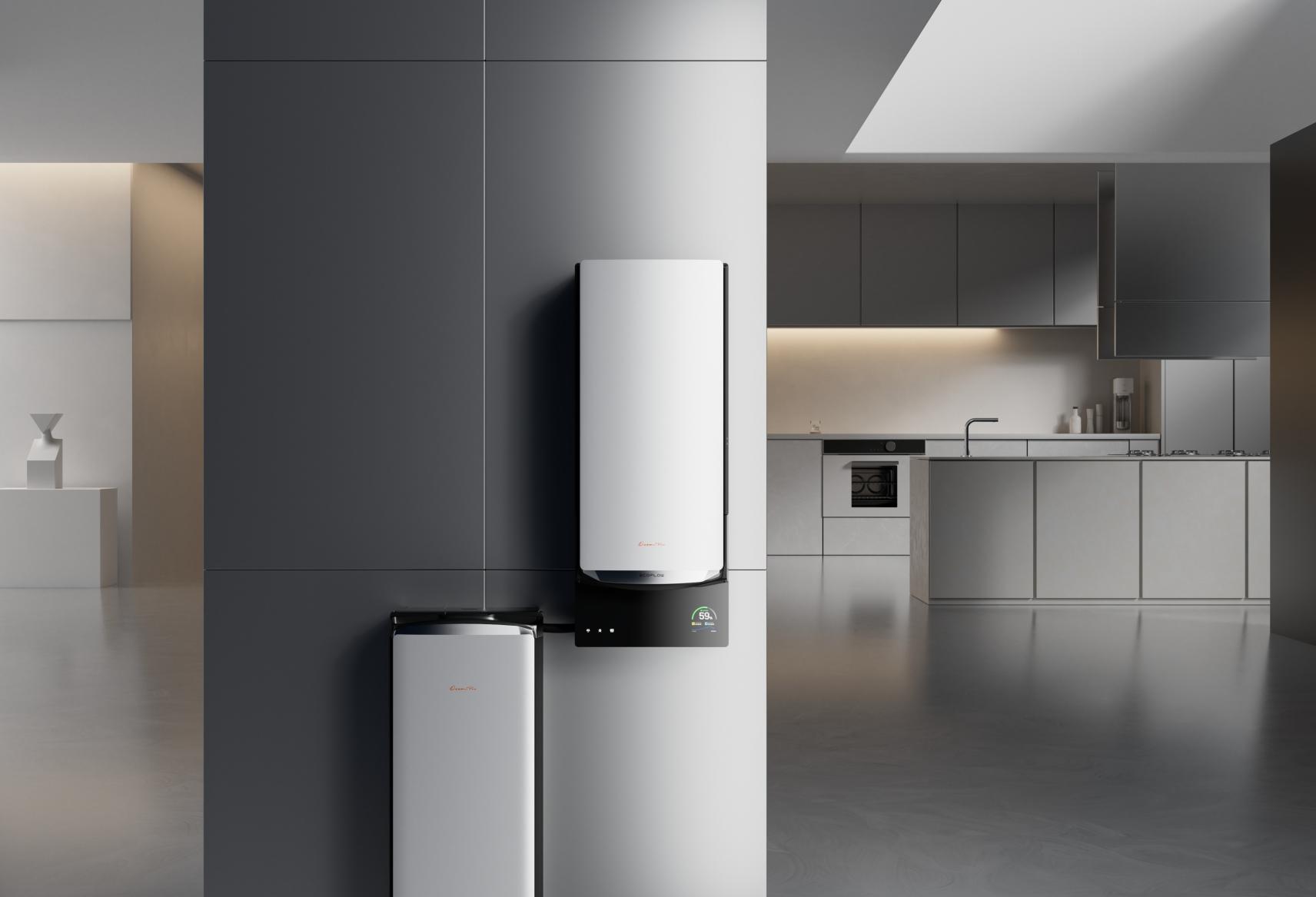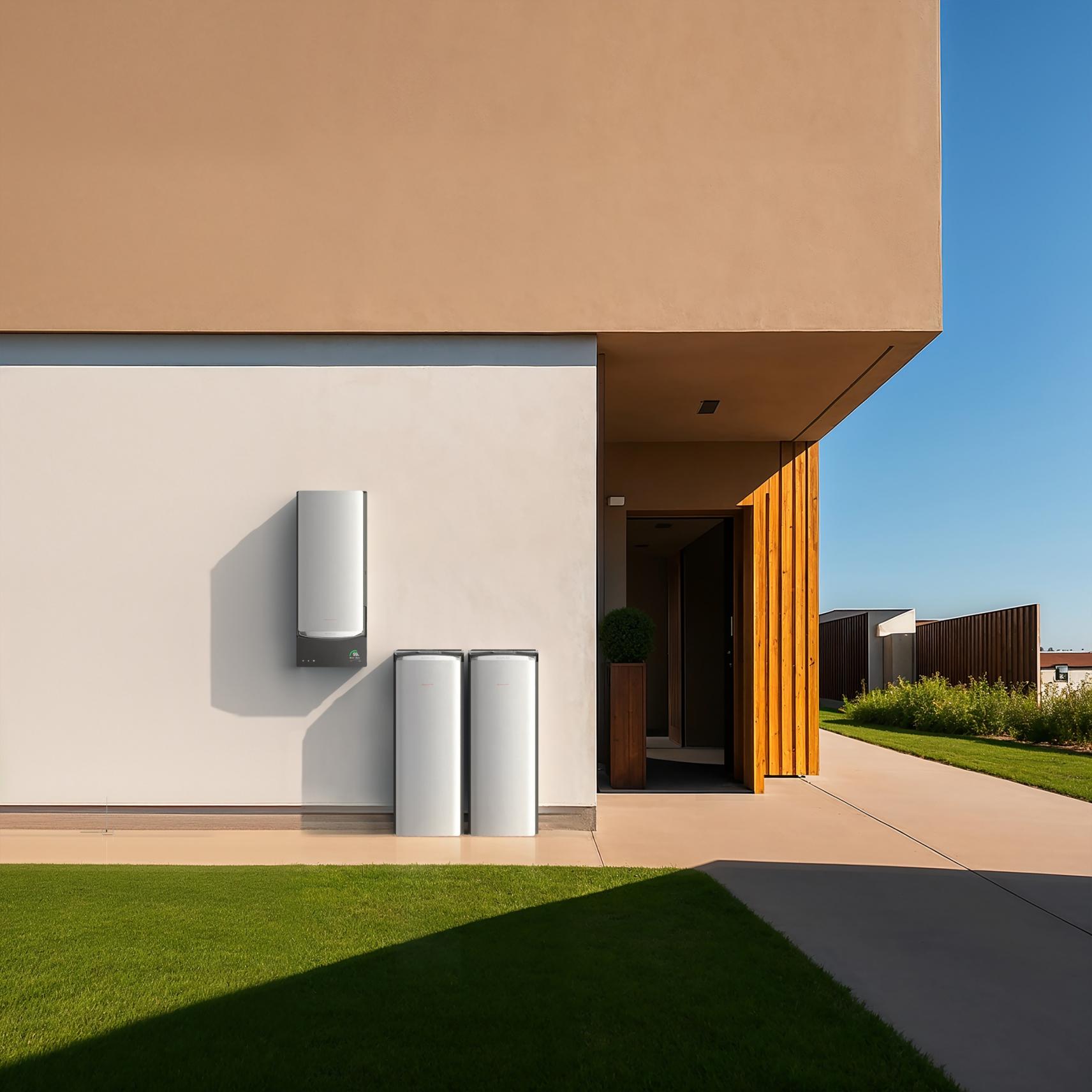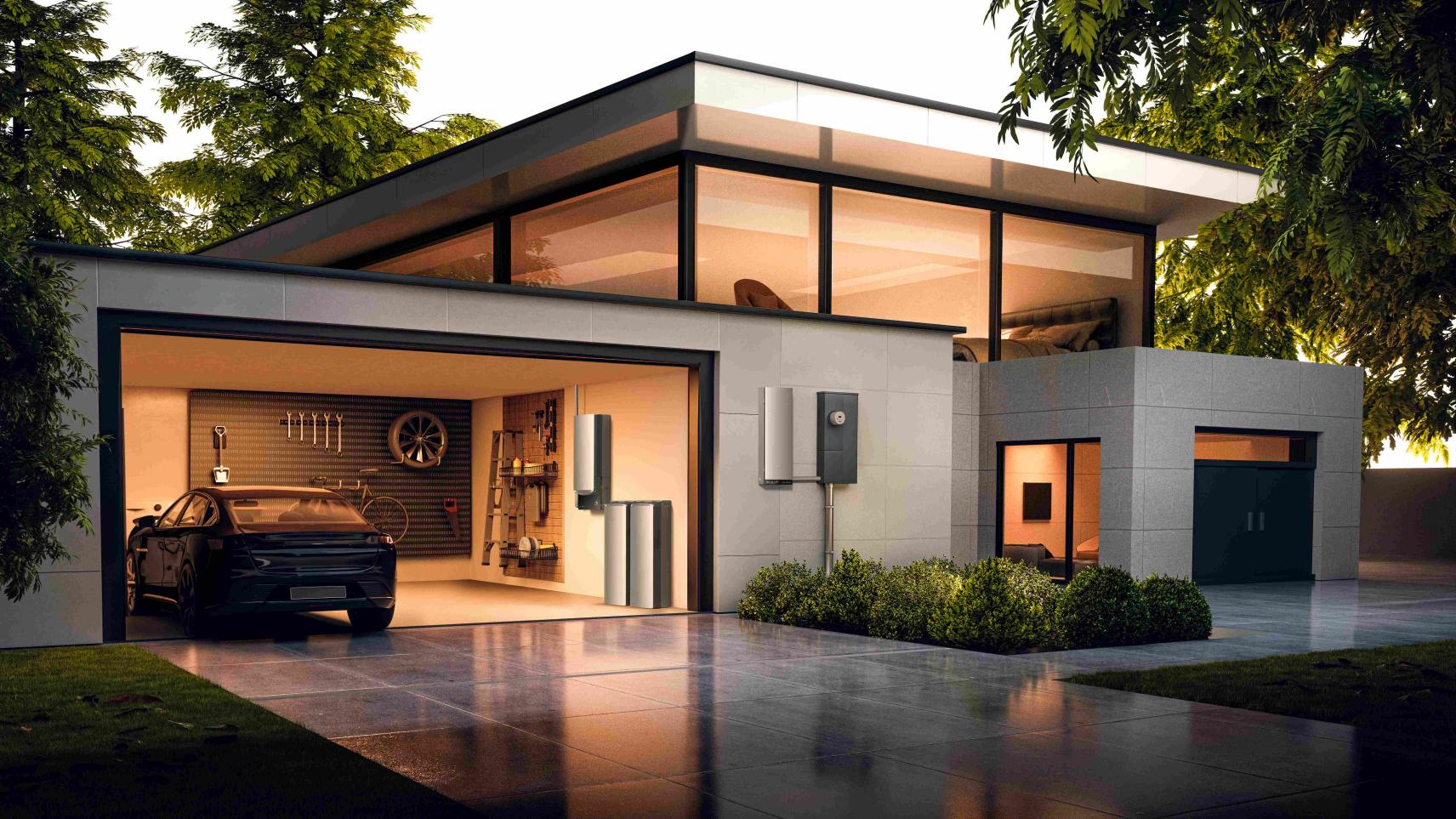Vehicle-to-Home (V2H) vs. Battery Energy Storage System: Which is Better for Your Home?
- What is Vehicle-to-Home (V2H) Technology?
- What is a Battery Energy Storage System (BESS)?
- V2H vs. BESS: Complete Comparison
- Which Energy Storage Solution is Right for You?
- Can You Use Both V2H and BESS Together?
- Battery Energy Storage Systems vs. V2H: What's Right for You?
- FAQ: Battery Energy Storage Systems and Home Energy Solutions
If you're tired of watching your energy bills climb month after month, you're not alone—and you've got options. Vehicle-to-Home technology lets you tap into your EV's battery to run your house, while a battery energy storage system gives you dedicated power storage that's always ready. Many homeowners pair these home energy storage systems with solar panels to maximize savings, but the big question remains: which solution delivers better value for your specific needs? It comes down to your current setup and long-term energy goals.
What is Vehicle-to-Home (V2H) Technology?
How V2H Works: Using Your EV to Power Your Home
Vehicle-to-Home technology lets you use your electric car's battery to run your house, like having a huge backup battery that you can also drive around. To make it work, you need a compatible EV (newer models from Ford, Nissan, and Hyundai support this), a special bidirectional charger that sends power both ways instead of just charging your car ($3,000-$7,000 installed), and connection equipment that links everything to your home's electrical system. Installation takes a few days and requires a licensed electrician to ensure it meets safety requirements.
Benefits of V2H Systems
V2H makes a lot of sense if you already own an electric vehicle. Here's what makes it appealing:
- If you already own an electric car, you only need the V2H charger ($3,000-$7,000) instead of a separate battery energy storage system ($10,000-$15,000), since your car handles both transportation and home power storage.
- Your EV takes over automatically when the grid fails, with a 75 kWh battery running essential appliances for 2-3 days during outages.
- You can charge overnight at cheap rates and use that power during expensive peak hours, with typical savings of $50-$150 monthly on your electric bill.
- Your parked EV powers your home instead of sitting idle, maximizing the value of your existing investment.
V2H Limitations You Should Know
V2H isn't perfect for everyone. Here are the real downsides:
- You need to reserve 20-30 kWh for driving, so a 60 kWh battery only provides about half its capacity for home use.
- Your backup power leaves when you drive to work, leaving your house unprotected during daytime outages when you might need it most.
- More charging cycles could accelerate battery degradation, and replacement costs $5,000-$15,000, though manufacturers say the impact is minimal.
- V2H handles occasional outages well, but a dedicated battery energy storage system works better for daily cycling with solar panels without compromising your driving range.
- V2H works best if you work from home, have a second vehicle, or need backup power for occasional outages rather than everyday energy management.
What is a Battery Energy Storage System (BESS)?


Home Battery Energy Storage Systems Explained
A battery energy storage system is a dedicated unit designed specifically to store electricity for your home. Unlike V2H that borrows your car's battery, BESS is a stationary system engineered from the ground up to handle daily charging and discharging. Most home energy storage systems use Lithium-ion or LFP (Lithium Iron Phosphate) batteries, with typical capacity starting at 10-13 kWh (powering an average home for 8-12 hours) and expandable to 40+ kWh by stacking units. A complete system includes the battery, an inverter to convert DC to AC power, and smart management software—creating a permanent power reserve that's always ready, whether your car is home or not.
Why Choose a Home Energy Storage System?
Home energy storage systems offer advantages that V2H simply can't match. Here's why thousands of homeowners are installing them:
You can freely use 90-100% of your BESS capacity without worrying about needing to drive somewhere, giving you full access to all 13 kWh in a typical system.
These systems last 10-15 years with 5,000-10,000 charge cycles and typically include 10-year warranties, focusing entirely on home power without sharing battery life with transportation needs.
Your backup power stays put whether you're at home, work, or on vacation—your battery energy storage system doesn't leave when you drive away.
BESS is designed to charge and discharge daily without problems, making it ideal for ongoing energy management rather than just emergency backup.
If you have or want solar panels, a solar energy storage system captures excess daytime power for nighttime use instead of sending it back to the grid for pennies, which is where BESS truly excels.
The combination of reliability, longevity, and solar compatibility makes BESS a true long-term investment in your home's energy independence.
BESS and Solar Power: The Perfect Match
Solar power energy storage systems transform how you use solar panels. Here's why they work so well together:
- Solar panels produce peak power from 10 AM to 3 PM when you're typically not home, and a solar energy storage system banks that excess instead of sending it back to the grid for minimal credit.
- Your stored solar power keeps running your home after sunset, letting you use free daytime electricity during expensive peak evening hours.
- Solar panels alone still require buying expensive evening electricity, but adding a battery energy storage system can cut your grid usage by 70-90% depending on system size and habits.
- The combination means you generate and store your own power—during outages, your home keeps running normally while your neighbors sit in the dark.


Many homeowners find that solar plus storage pays for itself in 7-10 years through energy savings, compared to 15-20 years for solar alone. Advanced whole-home energy storage systems like the EcoFlow OCEAN Pro can handle up to 40kW of solar input across 8 independent MPPT channels, making them ideal for homeowners with complex roof layouts or large solar arrays.
Drawbacks of Battery Energy Storage Systems
BESS isn't without downsides. Here's what might make you think twice:
A complete battery energy storage system costs $8,000-$15,000 installed, significantly more than adding V2H capability ($3,000-$7,000) if you already own an EV, though BESS costs less than buying both a car and V2H equipment for non-EV owners.
These units are typically the size of a wall-mounted water heater and need wall space in your garage, basement, or outside, which can be challenging for some homeowners to accommodate with proper temperature and ventilation.
Energy storage systems require licensed electrician installation with permits and inspections, adding $1,000-$3,000 to your total cost and taking 1-2 days to complete.
Durability concerns are becoming less relevant with newer systems. The EcoFlow OCEAN Pro, for example, features IP67-rated weather resistance with flood protection up to 3.3 feet and heat tolerance to 140°F, plus integrated fire suppression—making this whole-home energy storage system suitable for garages, outdoor installations, or even flood-prone areas where traditional systems wouldn't survive.
V2H vs. BESS: Complete Comparison
Now that you know how each system works, it's time to put them side by side. The best choice depends on multiple factors: your budget, whether you own an EV, your daily energy needs, and your long-term plans. Here's how V2H and battery energy storage systems stack up across the most important categories:
Comparison Factor | V2H (Vehicle-to-Home) | BESS (Battery Energy Storage System) |
Storage Capacity | 40-100 kWh total battery size, but only 20-50 kWh realistically usable (need to save power for driving) | 10-20+ kWh fully usable capacity, expandable by adding more units |
Power Duration | Can power average home for 1-3 days if car stays parked | Can power average home for 8-24 hours depending on system size |
Initial Cost (EV Owner) | $3,000-$7,000 (charger + installation only) | $8,000-$15,000 (complete system + installation) |
Initial Cost (Non-EV Owner) | $33,000-$67,000 (must buy EV + V2H equipment) | $8,000-$15,000 (complete system + installation) |
Long-term Value | Lower upfront cost for EV owners, but limited to one vehicle's lifespan | Higher upfront cost but dedicated system with predictable longevity |
Battery Lifespan | 8-10 years | 10-15 years with 5,000-10,000+ cycles |
Warranty Coverage | Typically 8 years/100,000 miles (vehicle battery warranty) | Usually 10 years with performance guarantees |
Availability | Only works when vehicle is parked at home; leaves with you when driving | 24/7 availability regardless of vehicle location |
Daily Reliability | Unpredictable for commuters; great for work-from-home households | Consistent, predictable performance every single day |
Best Use Case | Emergency backup power, occasional use, peak shaving when home | Daily energy cycling, consistent backup, solar integration |
Solar Compatibility | Can store solar power but only when vehicle is home and plugged in | Perfect match for solar; operates as complete solar energy storage system |
V2H is better than BESS in upfront affordability for existing EV owners (saving $5,000-$8,000 initially) and offers larger theoretical storage capacity, making it the smart choice if you already have a compatible electric vehicle and primarily need occasional backup power. However, battery energy storage systems are better than V2H in reliability, daily performance, and solar integration, providing 24/7 availability and longer lifespan (10-15 years vs. 8-10 years), which makes BESS the superior option for homeowners seeking dependable daily energy management and true energy independence, particularly when paired with solar power energy storage systems.
Which Energy Storage Solution is Right for You?
Choosing between V2H and a battery energy storage system isn't about which technology is objectively better—it's about which one fits your specific situation. Your current setup, daily routine, and future plans all play a role in making the smart choice. Here's how to figure out which solution makes the most sense for your home:
When V2H is Your Best Choice
V2H makes the most financial and practical sense in these situations:
✓ Already own a compatible electric vehicle: If you've got a Ford F-150 Lightning, Nissan Leaf, or other V2H-capable EV sitting in your driveway, you're already halfway there. Why spend an extra $8,000-$15,000 on a separate system when your car can do the job?
✓ Work from home or have predictable vehicle availability: Remote workers, retirees, or households with multiple vehicles can count on their EV being parked at home most of the time, making V2H a reliable backup option.
✓ Need occasional emergency backup power: If power outages in your area happen only a few times per year, V2H handles these situations perfectly without requiring a dedicated energy storage system.
✓ Want to reduce electricity costs during peak hours: V2H lets you charge your car overnight at cheap rates (often $0.08-$0.12 per kWh) and use that power during expensive evening hours ($0.25-$0.40 per kWh), cutting your bill significantly.
✓ Have simple, short-term energy storage needs: If you just want basic backup for a day or two during storms and don't need complex energy management, V2H keeps things straightforward.
✓ Seek a cost-effective entry point without major investment: At $3,000-$7,000, V2H is the most affordable way to add energy storage capability to your home if you already own an EV.
V2H is your winner if you want to maximize the value of your existing electric vehicle without spending big money on additional equipment.
When BESS is the Better Option
A dedicated battery energy storage system becomes the smarter investment in these circumstances:
✓ Have or plan to install solar panels: BESS transforms solar panels from a good investment into a great one. A solar energy storage system captures excess daytime solar power and uses it at night, potentially cutting your grid usage by 70-90% instead of just 30-40% with solar alone.
✓ Need reliable, daily energy storage: If you want to actively manage your energy every single day—not just during emergencies—BESS is built for thousands of daily charge cycles without degradation concerns.
✓ Want maximum energy independence: True off-grid capability or near-complete grid independence requires a dedicated system that's always available, not dependent on whether your car is parked at home.
✓ Require consistent backup power regardless of vehicle location: If you commute daily, take frequent road trips, or can't guarantee your EV will be home during outages, BESS provides 24/7 protection that never leaves your property.
✓ Plan for long-term home energy management: With 10-15 year lifespans and warranties, home energy storage systems are permanent home upgrades that add property value and provide decades of energy savings.
✓ Have higher daily energy consumption: Larger households or homes with high energy use (electric heating, home offices, multiple appliances) benefit from BESS's ability to handle consistent daily cycling without worrying about transportation needs.
✓ Value scalable, expandable capacity: Most BESS units let you start with 10-13 kWh and add more batteries later as your needs grow. Try doing that with your car battery.
BESS wins if you're serious about long-term energy independence, have or want solar power energy storage systems, or need rock-solid reliability every single day.


Can You Use Both V2H and BESS Together?
Yes, though it's overkill for most people. A hybrid setup means your BESS handles daily energy management while your EV provides extra backup during long outages—together they could power your home for a week or more.
- When it makes sense: This combo only pencils out if you face frequent extended outages (wildfire or hurricane zones) or have a large solar system that produces way more power than one battery can store. Otherwise, you're spending $15,000-$20,000 on redundancy you probably don't need.
- Installation reality: Both can work on the same electrical panel, but you'll need a coordination system and pay $2,000-$4,000 extra for complex integration. Most installers set BESS as your primary system with V2H as backup.
Pick the one system that fits your main need. Combining both is like having a generator and a battery energy storage system—technically possible, but unnecessary unless you have extreme requirements.
Battery Energy Storage Systems vs. V2H: What's Right for You?
There's no universal winner here—it depends entirely on what you've got and what you need. Already driving an EV around? V2H lets you add backup power for just $3,000-$7,000 without buying extra equipment. Want something that works around the clock and pairs with solar? Spend the $8,000-$15,000 on a dedicated battery energy storage system instead. Look at your current situation honestly: do you have an EV that's home most days, or do you need guaranteed power regardless of where your car is? Talk to an energy storage installer who can crunch the numbers based on your actual electricity bills and daily habits.
FAQ: Battery Energy Storage Systems and Home Energy Solutions
Q1: Do I need solar panels to benefit from an energy storage system?
No, solar panels aren't required, though they maximize the benefits. Without solar, both V2H and BESS can still save you money by storing cheap off-peak electricity (charged overnight at $0.08-$0.12 per kWh) and using it during expensive peak hours ($0.25-$0.40 per kWh). You'll also have reliable backup power during outages, which is valuable on its own.
Q2: What is the price of an energy storage system for a home?
The cost of a full battery energy storage system, which includes the battery unit, inverter, management software, and expert installation, ranges from $8,000 to $15,000. BESS is the more cost-effective choice if you don't already own an EV because V2H is less expensive for current EV owners ($3,000–$7,000), but non-EV owners would need to purchase both V2H equipment and a compatible electric vehicle ($30,000–$60,000).
Q3: Is it possible to combine solar panels and a battery energy storage system?
Yes, and this mix is perfect. When the sun isn't shining, solar power energy storage systems store the extra electricity your panels generate during the day (10 AM–3 PM) for use in the evening. Compared to solar panels alone, this combination can reduce your grid dependency by 70–90%, and the energy savings usually pay for themselves in 7–10 years.
Q4: During an outage, how long will my house be powered by a home energy storage system?
When fully charged, a typical 10–13 kWh battery energy storage system can power a normal home for 8–12 hours. This can be extended to 24+ hours with larger systems (20+ kWh). Your energy usage will determine how long it actually takes; for example, operating necessities like lights, refrigerators, and phone chargers will use less energy than running air conditioning and several appliances at once.
Q5: V2H or BESS: Which lasts longer?
With 5,000–10,000+ charge cycles and a 10-year warranty, BESS has a longer lifespan of 10–15 years. V2H depends on your car's battery, which has an 8–10 year lifespan and may deteriorate more quickly due to dual use (home power and driving). Car batteries aren't designed for this continuous cycling, but home energy storage systems are made specifically for daily charging and discharging.
Q6: Can I use an energy storage system without solar panels?
No, even while they optimize the advantages, solar panels are not necessary. By storing inexpensive off-peak electricity (charged overnight at $0.08 to $0.12 per kWh) and using it during pricey peak hours ($0.25 to $0.40 per kWh), both V2H and BESS can still save you money even if you don't have solar. Additionally, you will have dependable backup power in the event of an outage, which is beneficial in and of itself.
For press requests or interview opportunities, reach out to our media team
media.na@ecoflow.com